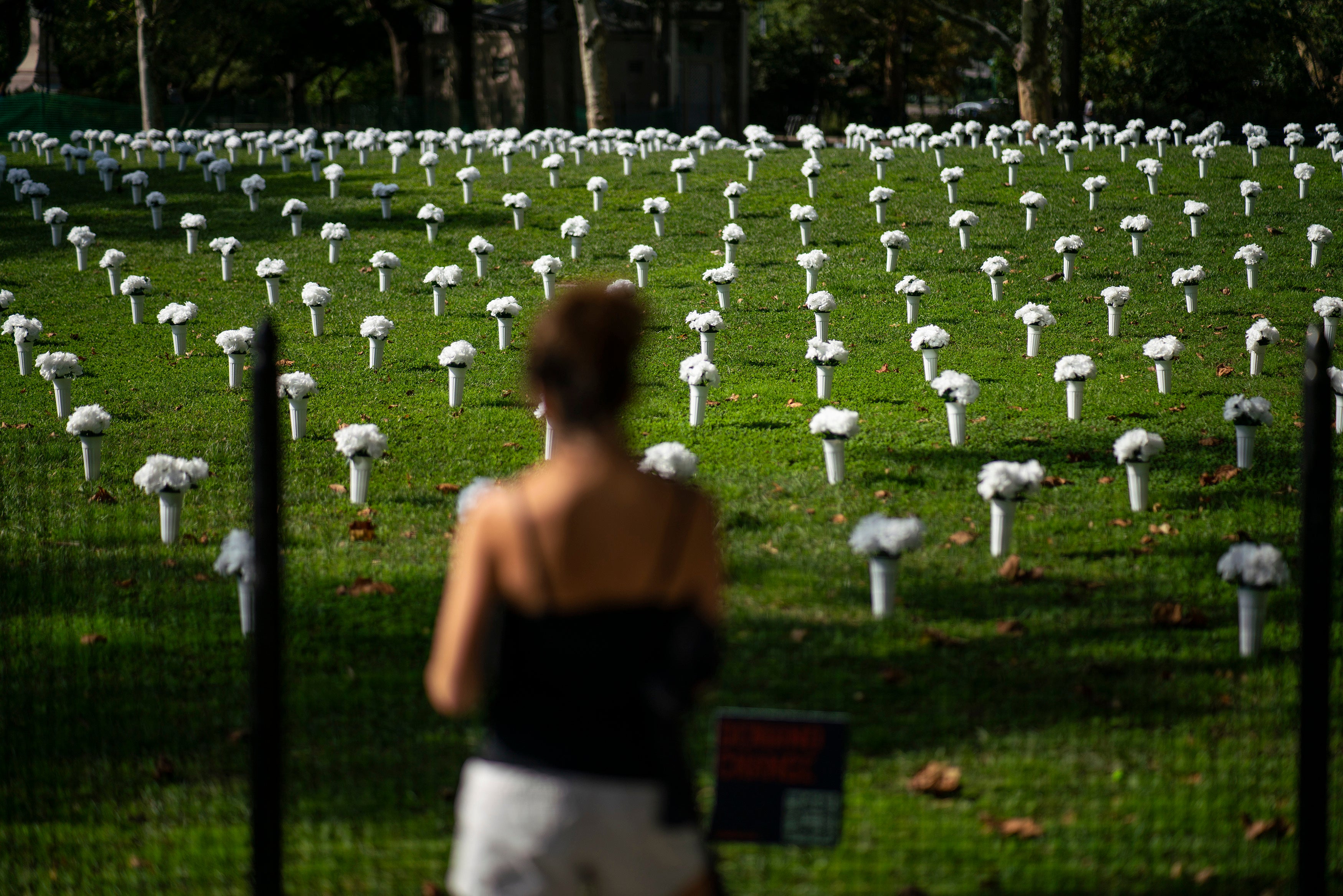4 northeastern states team up to share gun crime information
The governors of four northeastern states are agreeing to share information about firearms purchases to help detect and investigate straw buyers and other gun crimes

Your support helps us to tell the story
From reproductive rights to climate change to Big Tech, The Independent is on the ground when the story is developing. Whether it's investigating the financials of Elon Musk's pro-Trump PAC or producing our latest documentary, 'The A Word', which shines a light on the American women fighting for reproductive rights, we know how important it is to parse out the facts from the messaging.
At such a critical moment in US history, we need reporters on the ground. Your donation allows us to keep sending journalists to speak to both sides of the story.
The Independent is trusted by Americans across the entire political spectrum. And unlike many other quality news outlets, we choose not to lock Americans out of our reporting and analysis with paywalls. We believe quality journalism should be available to everyone, paid for by those who can afford it.
Your support makes all the difference.The governors of four northeastern states agreed Thursday to share information about firearms purchases to help detect and investigate straw buyers and other gun crimes.
Chief executives in Connecticut New Jersey New York and Pennsylvania signed a 10-page agreement to exchange gun crime data for use only by law enforcement, with provisions governing security and mandated notice if the information is misused or improperly accessed.
The four Democratic governors said the initiative will help target gun networks that cross state lines.
“Despite our best gun safety laws, we have more damn guns on the street than we ever had before,” Connecticut Gov. Ned Lamont said in an online announcement with the other three. “And if you're not taking guns seriously, you're not taking law and order seriously.”
New Jersey Gov. Phil Murphy said about 85% of guns recovered by police in his state over a recent six-month period came from other states.
“None of us on the screen here are blind to the fact that our individual states' gun laws are only as good as those in the rest of our neighborhood,” Murphy said.
Murphy has regularly pointed to gun control legislation he has signed as he seeks reelection this year in New Jersey. He’s also promised, if reelected, to mandate safety courses for those seeking gun permits, require lockboxes to store firearms and make gun manufacturers liable for the harm caused by their products.
The states plan to share details they get from the U.S. Bureau of Alcohol, Tobacco, Firearms and Explosives through “eTrace” reports that show who first bought and sold guns recovered during criminal investigations. The states can also share gun data that predates the Thursday agreement.
They are not required to share traces that are considered “priority and/or sensitive,” according to the agreement.
New York Gov. Kathy Hochul said gun violence has spiked during the pandemic and called the four-state memorandum transformative and a potential model across the United States.
“If Congress would simply allow us to share this nationally, what a better place this would be," Hochul said.
CeaseFire PA, an organization that seeks to reduce gun violence in Pennsylvania, hailed the agreement as a step forward but said state lawmakers also could help by passing other measures, such as mandatory reporting of lost and stolen firearms.
“Until the General Assembly starts acting to reduce in-state illegal firearm trafficking, we’ll continue to lose lives to this epidemic," said CeaseFire PA executive director Adam Garber.
The memorandum of understanding expires in five years but will automatically be renewed annually after that unless a state wants to get out. States may also withdraw with a 30-day notice.
The deal requires each state to designate and screen the law enforcement people who will be allowed access to the data, and it must be kept on computer systems dedicated to criminal justice.
The states must notify each other if the information is misused, including unauthorized access, disclosure, copying, modification, storage or deletion.
___
Associated Press writer Michael Catalini in Trenton, New Jersey, contributed.